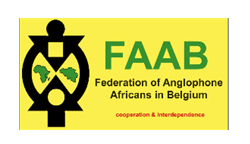Once one mentions GM crops, there are strong opinions on either side of the debate, for and against the use of GM crops in our food system. Irrespective of what scientific evidence the proponents of these crops may have as concerning food safety, of great interest is the aggressive marketing of these crops to developing countries. One is given the impression that accepting GM crops, is now associated with the willingness of African countries to tackle food security issues. However, there seems to be no recognition of the difference in the dynamics of different African regions and countries with regard to food security. Ethiopia after years of famine that necessitated continuous international intervention, is presently being showcased as a great example of the benefits of GM crops for Africa. Yet, GM crops impact on the indigenous food system is not mentioned or discussed, neither is there an alternative option given to people, who after experiencing years of extreme hunger because of famine, will accept any offers.
If famine, poverty and extreme hunger is the reason for turning Ethiopia into a GM poster country, what is the reason for trying to impose it on countries further south in the Sub-Saharan region such as Nigeria and Ghana. The case of Nigeria is rather interesting, as the so called national experts are openly advertising the virtues of Monsanto. Furthermore, the claim has been made that GM crops will bring more profit to farmers and alleviate poverty by creating more jobs. This is a flawed argument because with its oil resources, Nigeria and poverty should not be mentioned in the same sentence. Unlike Ethiopia, people are not hungry in Nigeria because of famine, but as a result of the endemic corruption of the leadership and the mismanagement of its resources. Professor Lucy Ogbadu, the director-general/chief executive officer of the National Biotechnology Development Agency (NABDA), termed those who are opposed to the GM crops law as saboteurs. According to her, “Nigeria needs to use biotechnology to create wealth in the country and eradicate poverty in the country... “. One is left wondering whose interest the politicians, government appointees and agribusiness companies are really protecting. Some in developed countries are hungry too but GM crops are not forced on them, because many of the developed countries have set down conditions for accepting GM crops, while others have refused them without facing the same agressive push for its acceptance Africa is seeing today.
What countries in Africa including Nigeria need, is support in finding a home grown solution to food waste and ameans of preserving its indigenous food system. Many of the seasonal crops are wasted because there is no system of storage or preservation. Thus people have access to different crops at certain periods and later many crops become scarce after their season.
In the indigenous food system of many African nations, food is equally derived from planted crops and undomesticated plants. Many plants are now extinct because measures were not put in place for extensive research on the best ways to preserve them or domesticate them. Preserving these indigenous crops is of no interest to the western agribusiness companies because it does not fit into their profit oriented interests. Many of the African entities that were previously interested in research that promotes indigenous food crops have now been co-opted by these international agribusinesses through funding, grants and sometimes outright take over.
Unless the West and the developed countries of this world, truly put the interest of Africans (on African issues) first and above their own economic interests in Africa ; and put an end to the continuous backdoor colonization of African resources, there will not be a solution to all the problems they keep pointing out. Well, unless the intention all along is to find no solution to the problems.
On a last note, it is of interest to mention aspects of the Canadian Biotechnology Action Network (CBAN), October 2014 report which states that “Experience with GM crops shows that the application of GM technology is more likely to enhance and entrench the social, economic and environmental
problems created by industrial agriculture and corporate control. Thus -
1. GM crops on the market are not designed to address hunger.
2. GM crops do not increase yields.
3. GM crops do not increase farmer incomes.
4. GM crops increase pesticide use and harm the environment.
5. GM crops are patented and owned by large corporations.
Compendium
Upcoming Events
The Helping Hand Project
In collaboration with Kwabre Ne Sekyere Belgium,Mfantesman vzw,Voice of Women International, Kente FM and other African organizations, we are organizing "The Helping Hand project",is an action started in 2016, aimed at feeding the homeless in the Brussels area. We are in need of volunteers to help with the cooking, packing and distribution of food to the homeless and needy. We are also still looking for sponsors for this project. We do not accept funds but prefer sponsorship in the form of donations of desired food items, food packaging materials. if you are interested in giving a helping hand, contact us on This email address is being protected from spambots. You need JavaScript enabled to view it.







 For the first time, two visionary women have been jointly honored as the 2025 African Diaspora...
For the first time, two visionary women have been jointly honored as the 2025 African Diaspora...  The Collective Action on Forgotten Food is calling on women artists, designers, illustrators...
The Collective Action on Forgotten Food is calling on women artists, designers, illustrators...  The Food Bridge vzw, with the support of its partners, publishes an annual Compendium...
The Food Bridge vzw, with the support of its partners, publishes an annual Compendium...  Diaspora organizations in Belgium are vibrant and diverse—spread across...
Diaspora organizations in Belgium are vibrant and diverse—spread across...  30 years ago in Beijing, women from around the world demanded equality and also made history. The...
30 years ago in Beijing, women from around the world demanded equality and also made history. The...  Registration is still open for the upcoming FAO & ICMPD event on 𝗔𝗴𝗿𝗶𝗳𝗼𝗼𝗱...
Registration is still open for the upcoming FAO & ICMPD event on 𝗔𝗴𝗿𝗶𝗳𝗼𝗼𝗱... 






